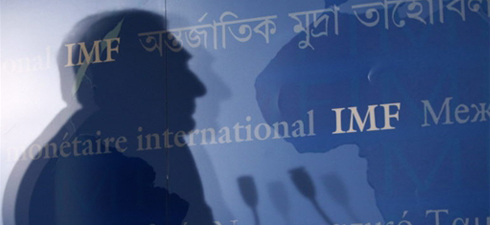An immense vacuum has opened up at the summit of the International Monetary Fund (IMF). At a critical moment for the Greek bailout and the stability of the Eurozone, a key player in the “emergency intervention” in crisis stricken sovereign states, which continue to threaten the global economy, has been destroyed by a scandal. And the IMF has been deprived of the man who did much to reinforce its role: Dominique Strauss-Kahn aka DSK.
Right now, the IMF has to cope with an unprecedented internal emergency, which may be resolved by the arrival of a Chinese or Brazilian president — an outcome that would affirm the hegemony of emerging countries and mark the end of "Europe’s right" to appoint the president of the IMF. If this proves to be the case, the European Union will have paid a very high price for the shameful fall from grace of one of its most promising leaders.
The impact of the shock has been considerable: the cancellation of the 15 May summit between DSK and German Chancellor Angela Merkel, which was supposed to address dangerous disagreements over the Greek crisis; an emergency meeting of the IMF executive board in Washington; and the temporary appointment of deputy managing director, American John Lipsky, to take over at the IMF.
DSK emerged as a providential figure
On Monday 16 May, a headless IMF delegation presented itself at the Eurogroup meeting, which is to decide on urgent cures for Greece and agree in principle to the appointment of Mario Draghi at the head of the European Central Bank (ECB). In Germany, the Minister of Finance Wolfgang Schäuble, who was forced to intervene to reassure markets before they opened, declared that "the solution to the Greek problem has not been blocked, and Dominique Strauss-Kahn’s arrest will not have an impact on negotiations."
It is an assertion that is easy to say, but the extremely serious nature of the loss to the global economy has surfaced in the form of extreme reactions in France, where the quest to identify behind the scenes manipulators is a testament to the extraordinary personality of DSK — that is, in terms of his professional career. In 2007, when he took over as its managing director, the IMF was apparently destined for extinction. In the first six months, while the markets were still unaware of the subprime bubble, Turkey reimbursed "the last loan" granted by the IMF, which had nothing else left on its books. Everything was going too well. There were no countries in need of aid.
Then, in just a few months, apocalypse struck and the world was plunged into a financial crisis on a scale unprecedented since the Great Depression. As the energetic head of a revitalised IMF, which rediscovered its vocation for intervention, DSK emerged as a providential figure hurrying from crisis to crisis in Pakistan, Ukraine, and Iceland, and quickly became identified with the critically important task of putting out fires on the periphery of the EU without arousing jealousy in Brussels or Europe’s member states.
Chaos has returned to the markets
While Ireland, Portugal, Greece became regular stops on his international tours, DSK broke with the dominant neoliberal ideology by demanding greater controls on the movement of capital and new banking system rules. He also spoke out against social inequality and appointed a Chinese economist as his special advisor. In the throes of the crisis, even the United States came to appreciate the presence of a French socialist, who had vision for the reforms needed to counter the excesses of all powerful markets. Even more enthusiastic, the Europeans lavished him with praise.
Over 18 months his long-standing personal relationships with French President Nicolas Sarkozy, ECB president Jean-Claude Trichet, and Greek Prime Minister George Papandreou as well as his good standing with Angela Merkel and US President Barack Obama proved to be precious weapons in the battle over measures to prevent the break-up of the Eurozone.
Were it not for this affair in the Manhattan Sofitel, DSK would now be attending a 16 May meeting in Brussels to act as a mediator between Germany, the ECB and the European Commission which will decide on a 60 billion loan for Greece to ward off the restructuring of its public debt. Chaos has returned to the markets where Greek bankruptcy is expected to herald the fall of Ireland and Portugal along with any number of other countries.
DSK was working on a socially viable solution to crisis
The scenario is not new, but we have succeeded in gaining time and the worst has been avoided for a year and half. That said, DSK also warned against another even greater danger: the threat that shock therapy prescribed for the PIGS (Portugal, Ireland, Greece, Spain) will plunge them into a recession, like the one currently endured by Greece which is in the process of losing four percentage points of GDP.
Public debt cannot be reduced against a backdrop of social cataclysm. DSK was working on a socially viable solution. The Americans have admiringly dubbed him a real micro-manager in recognition of the care he lavished on every detail of his anti-crisis measures. And there is no doubt that he is an exemplary micro-manager of everything with the exception of himself.
Was this article useful? If so we are delighted!
It is freely available because we believe that the right to free and independent information is essential for democracy. But this right is not guaranteed forever, and independence comes at a cost. We need your support in order to continue publishing independent, multilingual news for all Europeans.
Discover our subscription offers and their exclusive benefits and become a member of our community now!












